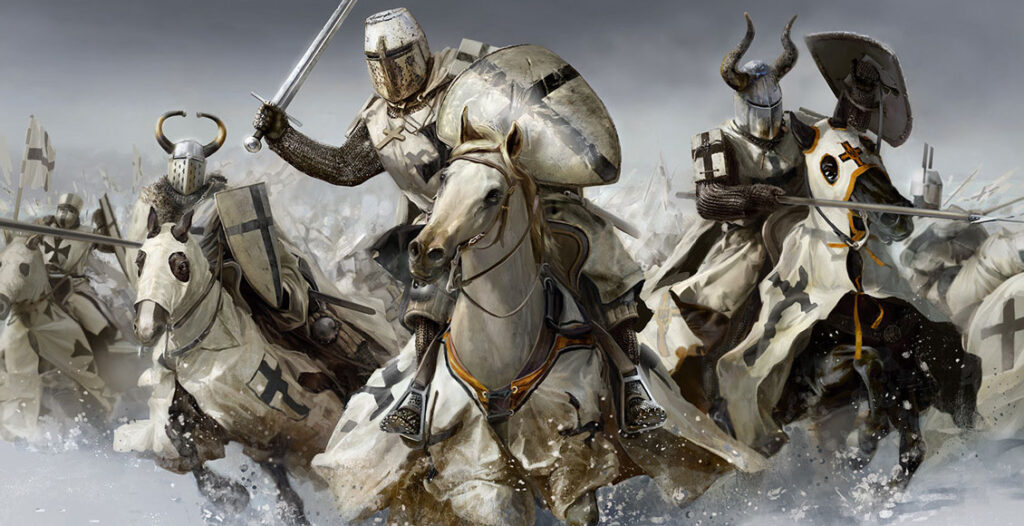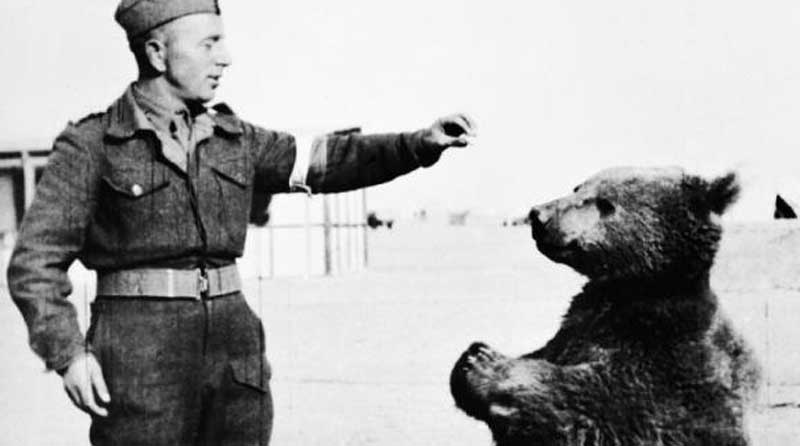The Great War between the Kingdom of Poland and the Teutonic Order did not end with the great Grunwald Victoria, which took place on 15 July 1410. Although many of the Order’s knights – including Grand Master Ulrich on Jungingen – died or was taken captive, the Poles unfortunately failed to conquer Marienburg, which was the capital of the Order. The war stopped and this allowed the Teutonic Knights to rebuild their forces quickly. In October, their armies already numbered more than 10,000 people, mainly thanks to Western knights who believed in the Teutonic Knights’ propaganda and fought in large numbers against Poles and Lithuanians under Teutonian banners.
The Order sought to achieve peace for itself, which is why it was looking for the opportunity to fight another (this time the victorious) clash. One of the Teutonic armies that started offensive action was the 4,000 forces of the famous knight Michael Küchmeister from the New March, who after the conquest of Tuchola set off on the fortified Cistercian monastery in Koronów to attack Bydgoszcz from there.
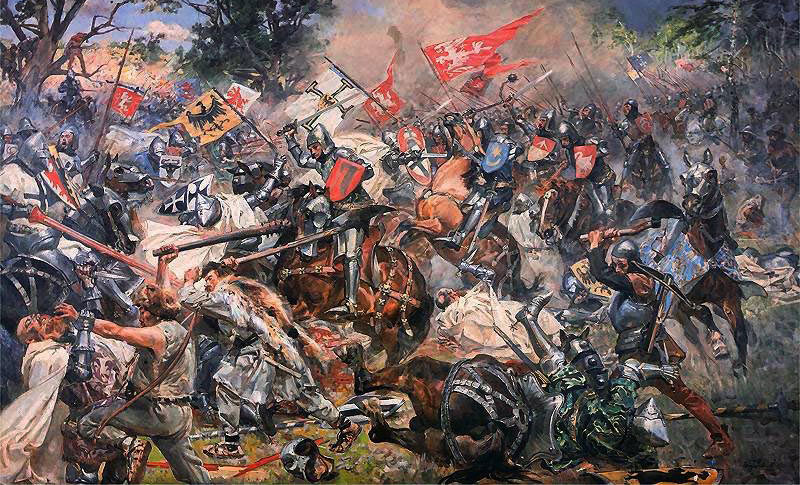
Wojciech Kossak via Wikimedia Commons
When Polish troops received the news of Küchmester’s departure, King Władysław Jagiełło decided to try to destroy his forces, which were at that time one of the three operational Teutonic armies. However, the Polish ruler had a problem with gathering enough people – after the victory at Grunwald most of the army went home, and the Kingdom of Poland did not have enough money to keep the troops tight. However, Jagiełło managed to form a 2 thousand force composed of court knights, local units of the Poznań voivode and also light-armed Tatars. Polish forces under the command of experienced knights Sędziwój from Ostrorog and Piotr Niedźwiecki quickly took over the village of Koronowo and set up in a battle pattern behind the city, the front to the incoming Teutonic Knights.
When Küchmeister saw the coming Poles, he began withdrawing his troops. Eventually, he was caught up by them in the vicinity of Łącko village, where he took positions on the hill. On October 10, 1410, a battle began which took on the character of a tournament, i. e. the two armies set themselves in front of each other (front of the knights, behind their squires) and duels between knights began.
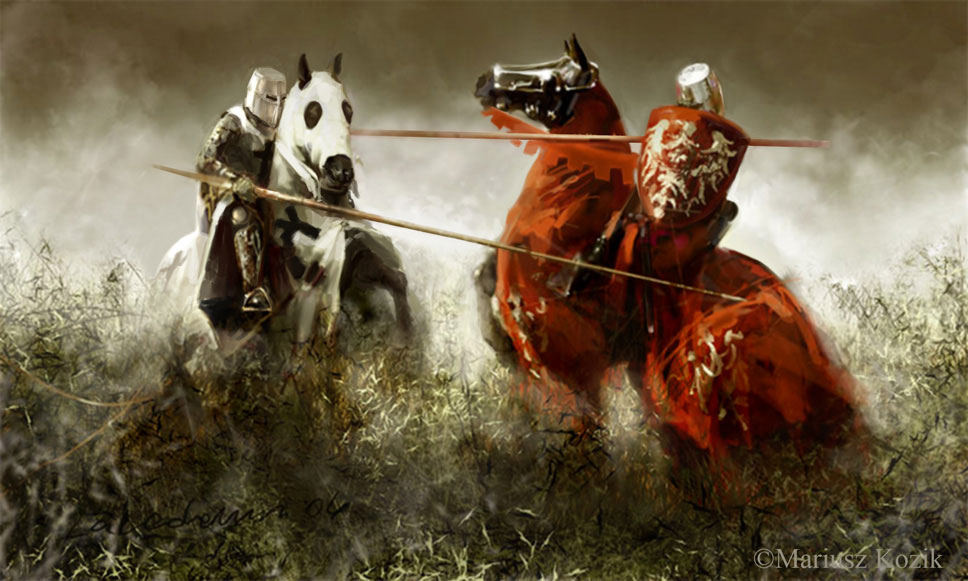
Painting: Mariusz Kozik 2006
A break was ordered twice during the battle. During the rest, both sides exchanged prisoners of war with each other, shared food and wine, and even talked and sang about the heroic achievements of their opponents.
After the second break, in the third clash, Polish knight Jan Naszon from Ostrowiec defeated the Order’s bannerman. The Teutonic Order’s banner fell, which was a signal to retreat. Many of the fleeing Teutonic Knights and their allies were then captured by the Polish light-armed, who quickly chased and cought many opponents.
Even the course of the battle itself can be described as knightly and honorable, but what the Polish king later did was an even better example of observing the medieval knights ethos and, as we would call it in our times, a great Public Relations invention. After the battle of Koronowo, the Teutonic commander Michael Küchmeister was imprisoned in Chęciny Castle, but other prisoners of war, including many knights from Germany, France and Bohemia, allied with the Teutonic Knights, were invited by King Jagiello to Bydgoszcz. Recent enemies were treated with a royal feast, horses and the rest of the equipment was returned and then all knights were released.
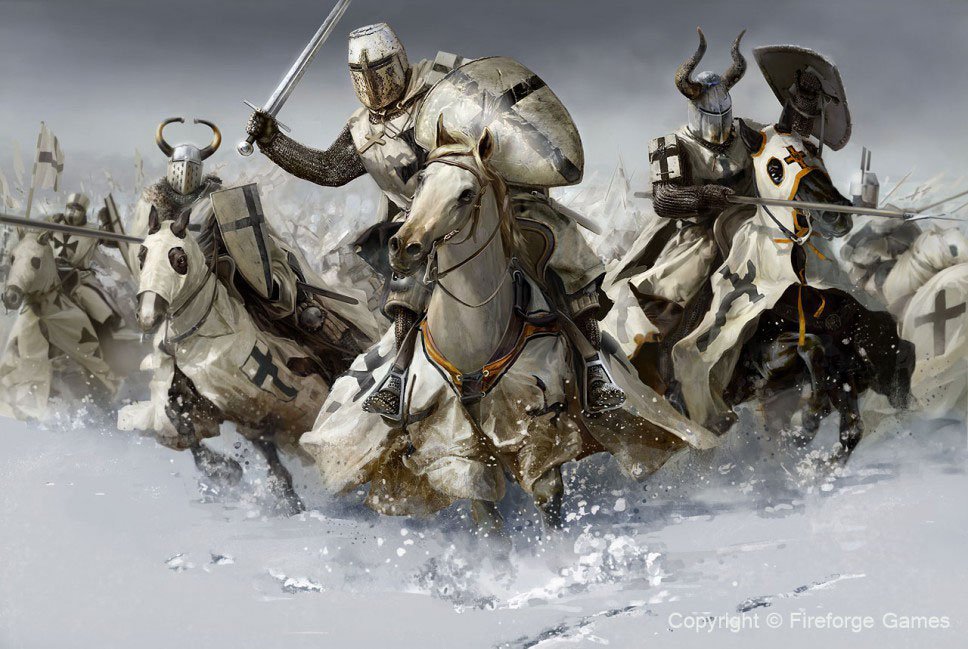
Mariusz Kozik for Fireforge Games
All these knights went to the western courts, celebrating the courage, generosity and religiousness of the Polish king. It was a deliberate movement, a very effective defence against the Teutonic Knights’ propaganda which they used in Europe without any scruples in order to encourage the local knights to join the “crusade against Poland and Lithuania”.
The Battle of Koronowo brought several benefits to Poland – first of all, one of the three Teutonic armies was destroyed, weakening the offensive potential of the Order and bringing it closer to the peace treaty, which was concluded on February 1,1411 in Toruń. Secondly, Władysław Jagiełło’s cleverness and noble movement towards western knights allowed the European courts to slowly expose the true, expansive and false nature of the Order of Brothers of the German House of Saint Mary in Jerusalem.
[The banner was used here thanks to the permission of Mr Mariusz Kozik. More of his work is available here]

